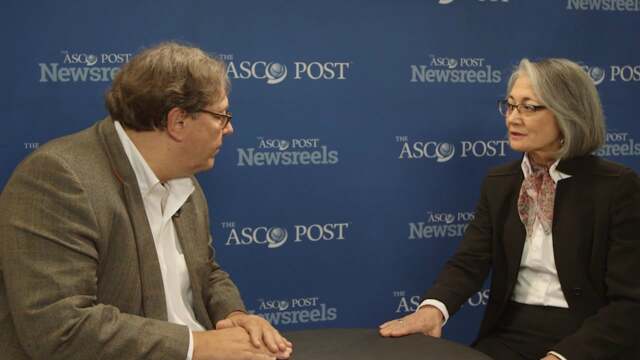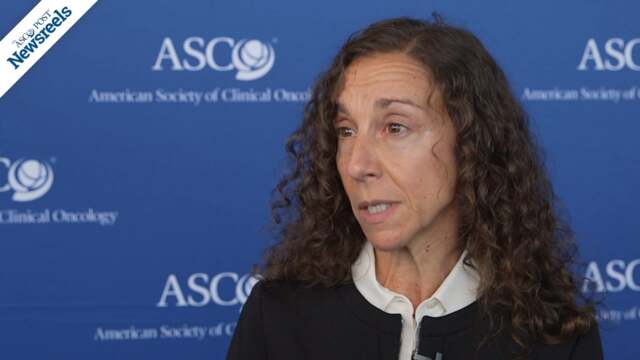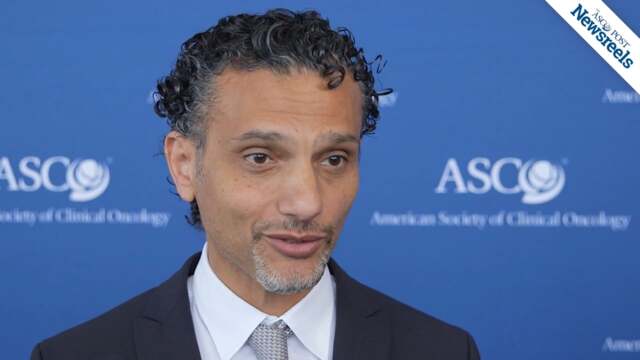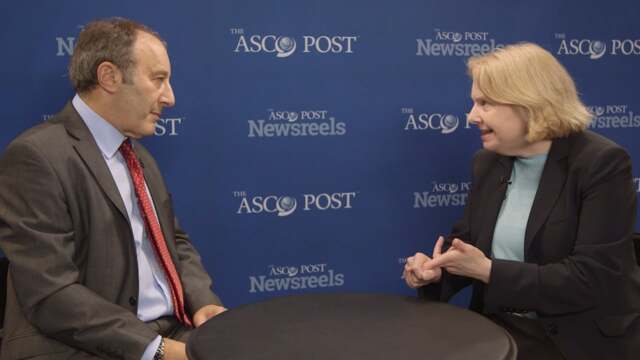James Kochenderfer, MD, on Inducing Remissions in B-Cell Lymphoma
2016 ASCO Annual Meeting
James Kochenderfer, MD, of the National Cancer Institute, discuss results of a small study on genetically modified CAR-T cells, which may well become a standard lymphoma treatment (Abstract LBA3010).
A. Oliver Sartor, MD, of Tulane University, and Celestia S. Higano, MD, of the University of Washington, discuss findings from this phase III study on cabazitaxel vs docetaxel in chemotherapy-naive patients with metastatic castration-resistant prostate cancer (Abstract 5006).
Antonio Palumbo, MD, of the University of Torino, discusses in Italian this phase III study of daratumumab, bortezomib, and dexamethasone versus bortezomib and dexamethasone in patients with relapsed or refractory multiple myeloma (Abstract LBA4).

To see the English language version of this video, please
click here.
Julie R. Park, MD, of Seattle Children’s Hospital, discusses findings from this phase III trial of tandem myeloablative autologous stem cell transplant using peripheral blood stem cell as consolidation therapy for high-risk neuroblastoma (Abstract LBA3).
Salah-Eddin Al-Batran, MD, of the Institute of Clinical Cancer Research and Nordwest Hospital, discusses findings from this international phase II study of epirubicin, oxaliplatin, and capecitabine with or without IMAB362, as first-line treatment of gastric and gastroesophageal junction adenocarcinoma (Abstract LBA4001).
The
Jonathan A. Ledermann, MD, of Cancer Research UK and University College London Cancer Trials Centre, and Ursula A. Matulonis, MD, of the Dana-Farber Cancer Institute, discuss findings on overall survival in patients with platinum-sensitive relapsed serous ovarian cancer receiving olaparib maintenance monotherapy (Abstract 5501).





